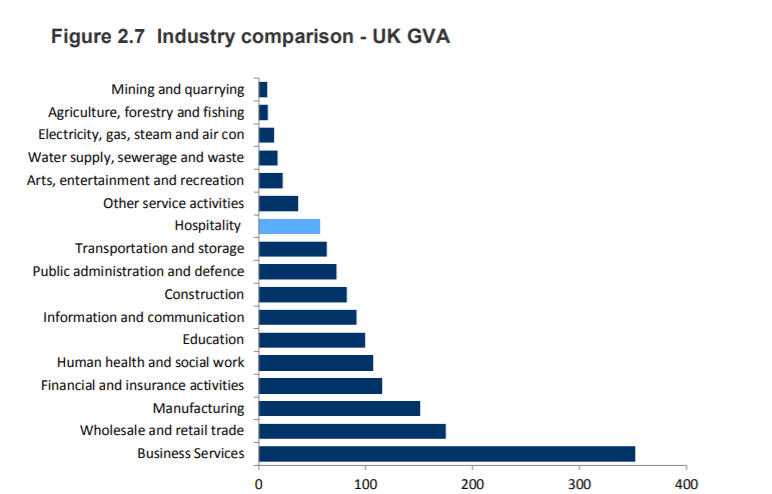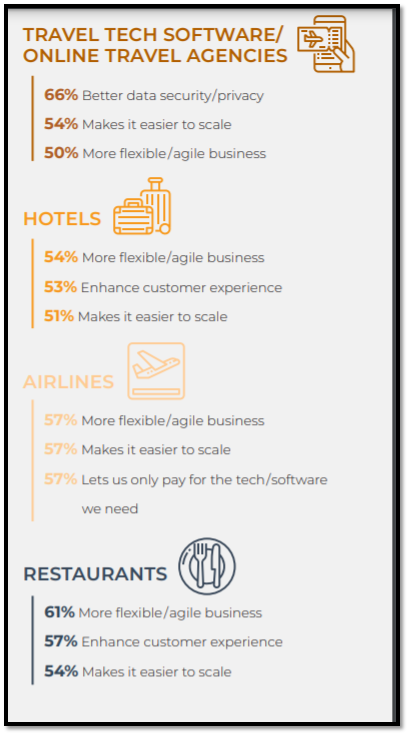Conclusion and recommendations
Table of Contents
Introduction
 service sector is considered
to be a very crucial contributor when it comes to national GDP,
according to 2019 statistics which indicate that service sectors
contribute around 80% in the GDP, whereas agriculture only contributes
to 0.6% and manufacturing and production contribute around 20%. The
growing humanitarian crisis from the coronavirus which has shaken
businesses across the globe as they are grappling with how they could
continue serving their customers as well as a community across the
globe. the task is quite challenging for the industry, especially for
those who rely heavily on personal interaction that is the service
sector, which is one of the vast sectors that includes banking to
hospitality, industrial services, and telecommunications (Deloitte
Netherlands, 2020). Due to the physical distancing, limited human
contact, and severe reduction in nonessential operations have read some
of these serious fundamental challenges for this service organization to
reach the consumers as well as in meeting their expectations.
Hospitality is also one of the crucial sectors that contributes 4% of
the GDP, however, this sector has been severely disrupted due to the
novel coronavirus. However, these sectors are trying to cope up with the
virus through adopting the new advanced technologies that are not only
adding value but is also helping them in attracting the targeted
customers (Jain, 2020).
service sector is considered
to be a very crucial contributor when it comes to national GDP,
according to 2019 statistics which indicate that service sectors
contribute around 80% in the GDP, whereas agriculture only contributes
to 0.6% and manufacturing and production contribute around 20%. The
growing humanitarian crisis from the coronavirus which has shaken
businesses across the globe as they are grappling with how they could
continue serving their customers as well as a community across the
globe. the task is quite challenging for the industry, especially for
those who rely heavily on personal interaction that is the service
sector, which is one of the vast sectors that includes banking to
hospitality, industrial services, and telecommunications (Deloitte
Netherlands, 2020). Due to the physical distancing, limited human
contact, and severe reduction in nonessential operations have read some
of these serious fundamental challenges for this service organization to
reach the consumers as well as in meeting their expectations.
Hospitality is also one of the crucial sectors that contributes 4% of
the GDP, however, this sector has been severely disrupted due to the
novel coronavirus. However, these sectors are trying to cope up with the
virus through adopting the new advanced technologies that are not only
adding value but is also helping them in attracting the targeted
customers (Jain, 2020).
 Hilton hotels and resorts which are
primarily known as Hilton hotels, this is one of the most well renowned
and global brands which provide full-service hotels. the company was
first formed in 1919 by Conrad Hilton (Jain, 2020), the hotel is a
multinational American hospitality company, which have more than 3800
hotels and resorts in more than 91 nations across the major six
continents. Besides that, they have around 1,40,000 subsidiaries across
the globe. these figures make Hilton hotels one of the largest brands
all over the world. the hotel is known for its sophisticated and premium
services, the hotel targets leisure travelers as well as businessmen.
recently it has been seen that the organization is transferring itself
in context to the technologies as the hotels have adopted many IoT
(internet of things) technologies as well as artificial intelligence
(Jain, 2020). It can be seen that all the hospitality executives have
equipped their hotel rooms and other areas with IoT devices in order to
enhance customer satisfaction. Besides that, they are also considered
effective in saving energy and maintenance, they are also effective in
managing the crowds and providing confidence to their workers.
Additionally, adding artificial intelligence have healthy hotels in
making them smart the test successfully helps them in surpassing
customer satisfaction (Johnson, 2020).
Hilton hotels and resorts which are
primarily known as Hilton hotels, this is one of the most well renowned
and global brands which provide full-service hotels. the company was
first formed in 1919 by Conrad Hilton (Jain, 2020), the hotel is a
multinational American hospitality company, which have more than 3800
hotels and resorts in more than 91 nations across the major six
continents. Besides that, they have around 1,40,000 subsidiaries across
the globe. these figures make Hilton hotels one of the largest brands
all over the world. the hotel is known for its sophisticated and premium
services, the hotel targets leisure travelers as well as businessmen.
recently it has been seen that the organization is transferring itself
in context to the technologies as the hotels have adopted many IoT
(internet of things) technologies as well as artificial intelligence
(Jain, 2020). It can be seen that all the hospitality executives have
equipped their hotel rooms and other areas with IoT devices in order to
enhance customer satisfaction. Besides that, they are also considered
effective in saving energy and maintenance, they are also effective in
managing the crowds and providing confidence to their workers.
Additionally, adding artificial intelligence have healthy hotels in
making them smart the test successfully helps them in surpassing
customer satisfaction (Johnson, 2020).
Organizational factors
Internal factor
External factors
Competition: one of the major external factors which could influence the hotel is the fierce competition in which their organization is operating, the level of competition and the existence of key player can have a direct impact on the organization (Mckinsey & company, 2020). therefore, in order to get an edge over the competition, the organization needs to indulge in innovation so that they could outshine the others.
Change in customer taste and preference: another major external factor that could have a direct impact on the hotel is the change in customer taste and preference. according to analysts, it has been found that customer expectations are dynamic in nature and they tend to change over some time. hence the organization needs to make sure they are adapting according to the taste and the preferences of the targeted audience (Mckinsey & company, 2020). Currently, it has been found that people are getting more inclined towards technology-driven organizations. Hence it has become important for the organization to implement relevant technologies in their organization so that they could offer the customer exactly what they desire.
The role of the people
Data- The Value of data
Conclusion and Recommendations
From the above discussion, it can be said that it is very important for the organization to transforms itself digitally, to keep up with the competition and the growing expectations of the Consumers. it has been widely reported that over 90% of the organization or businesses are either in the face of change, we're in a phase where they are planning to change or it could be said that at least considering the points where they might have to change (PwC, 2020). One of the major challenges that still remain for many of the organizations is that they’re struggling to understand the underlying threats as well as the opportunities associated with digital transformation. In the above analysis, we have seen some of the major opportunities which Hospitality organization could enjoy with digital transformation, however, there are some of the major areas on which the organization needs to work upon so that it becomes easier for the organization to become digitally mature, data-driven a people-focused organization. however, they are some of the threats also that are associated with the change that needs to be considered (PwC, 2020). Some of the recommendations for the Hilton Hotel they are:
Acquiring Capabilities: The skills which are needed for digital transformation can't be groomed entirely within the organization. hence the leadership team needs to be realistic when it comes to collective ability when it comes to their existing workforce. hence the organization needs to recruit new talent especially in the early stages of transformation so that adequate capabilities of the workforce should be hired by the organization during the transformation (PwC, 2020).
References
Jain, D., 2020. How Can Hotels Survive the Pandemic Using Effective Digital Application/mechanical Strategies? Long Term Solutions to Make Hotels COVID-19 Safe. SSRN Electronic Journal,.
Johnson, B., 2020. Hospitality Sector Worst Hit By Covid-19 As UK Enters "Largest" Recession. [online] Short Term Rentals. Available at: <https://shorttermrentalz.com/news/ons-hospitality-uk-recession/> [Accessed 3 November 2020].
Pizam, A., 2017. The internet of things (IoT): The next challenge to the hospitality industry. International Journal of Hospitality Management, 62, pp.132-133.
PwC, 2020. In Iot We Trust: Pwc's Hospitality Snapshot. [online] PwC. Available at: <https://www.pwc.com/us/en/services/consulting/technology/emerging-technology/iot-pov/hospitality-iot-snapshot.> [Accessed 3 November 2020].
